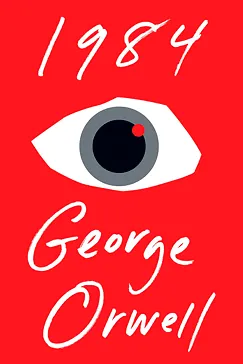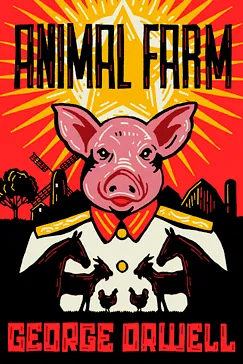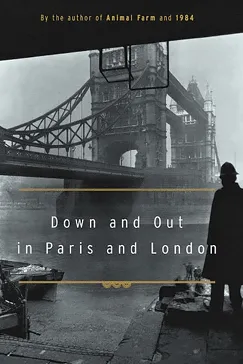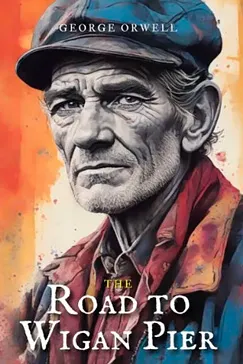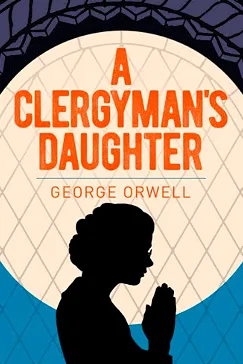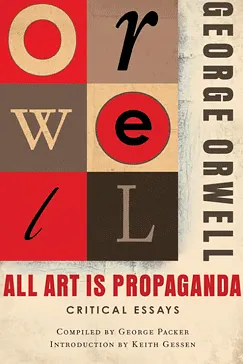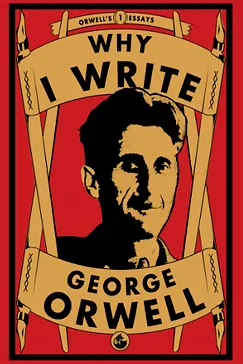
George Orwell, a British author and journalist, is widely recognized for his contributions to dystopian literature and political commentary. Best known for classics like "Animal Farm" and "1984," Orwell's works often explore themes of totalitarianism, societal control, and the consequences of unchecked political power.
1984
4.6
114 438 ratings
In a dystopian future, an Orwellian totalitarian regime puts society under oppressive control from above, which gets personified in the figure of Big Brother. Total surveillance of the citizen's life gives the government the power to strike conformity by fear and repression of dissent. Winston Smith is a man working in one of the official positions of the ruling party, and at the same time he is a secret hater of this regime. He is dreaming of rebellion and happens to find a person of similar soul, Julia. Together they look for freedom in the world where independent thinking is a crime. It's a fight against omnipresent state surveillance and the chilling grip of Thought Police as it explores themes of truth, love, and resistance.
Animal Farm
4.7
69 933 ratings
Recommended by: Hamza Yusuf
A satirical allegorical novella of totalitarianism, it is the story of an animal farm where animals start a rebellion against the farm owner to institute their own principles of equality, freedom, and happiness only to find themselves oppressed under an even more iron-fisted rule than before.
Down and Out in Paris and London
4.5
4 947 ratings
Pulling from his own experiences, Orwell's memoir provides an uncompromising portrayal of destitution and societal inequities. He vividly recounts the squalid conditions as an overworked, underpaid dishwasher in Paris's grimy kitchen underbelly, followed by his stretch as a tramp in London's bottle alleys and "spike" homeless shelters. These eye-opening encounters shaped his socialist ideology and inspired his signature raw, fact-based writing style to expose injustices.
Burmese Days
4.3
3 457 ratings
A biting satire set in colonial Burma, the novel centers on John Flory, an Anglo-Indian timber merchant increasingly disillusioned with British imperial attitudes. Flory finds himself caught between the narrow-minded European cliques obsessed with superficial prestige, and his empathy and respect for the subjugated Burmese people and culture. Orwell's experiences in Burma's police force informed this scathing look at oppression's moral compromises.
Keep the Aspidistra Flying
4.2
1 371 ratings
In this semi-autobiographical tale, Gordon Comstock rebels against capitalism and middle-class values by quitting his cushy advertising job to pursue poetry while living in purposeful poverty. Orwell explores themes of integrity versus social conformity, the quest for meaning beyond money, and whether the working class endures more spiritual truth amid bleak circumstances. The novel reflects Orwell's own anti-materialistic values.
A Clergyman's Daughter
3.9
890 ratings
In this satirical novel exploring questions of identity and class, Dorothy Hare, the daughter of an Anglican clergyman, temporarily develops amnesia, inadvertently joining a gang of vagrant tramps and discovering the harsh realities of working-class life. Through her adventures, Orwell examines how memory shapes one's beliefs, alienation from societal roles, and the deep divides separating the upper classes from England's impoverished underclass.
Fascism and Democracy
4.5
576 ratings
Orwell provides sobering analysis of how citizens in ostensibly democratic nations can grow apathetic and allow proto-fascist movements to undermine civil liberties and gain power by prioritizing an illusion of superficial unity and blind patriotism over upholding freedom of thought, expression, and a pluralistic society. He sternly warns against the intensely seductive allure of authoritarian control in times of economic turmoil and societal dislocation.
All Art Is Propaganda
4.6
289 ratings
In this thought-provoking essay, Orwell makes the provocative case that all creative works, even those not explicitly covering political topics, ultimately act as propaganda by inevitably reflecting the writer's perspective, beliefs, and blind spots, thereby shaping the reader's understanding of societal truths and human nature.
Why I Write
4.5
280 ratings
This classic essay expounds on Orwell's core motivations for writing - the drive to unearth objective truth, yearn for historical documentation, desire for creative expression, and ultimately a political purpose of arming the revolutionary socialist movement against censorship and totalitarian oppression through unembellished language.
Shooting An Elephant
4.5
211 ratings
This iconic literary narrative essay recounts Orwell's autobiographical experience as a British imperial police officer in colonial Burma, being reluctantly provoked to kill a rampaging elephant to appease a crowd's expectations, despite the animal no longer posing a deadly threat. It provides a rich study of the moral conflicts, dehumanizing pressures, and loss of dignity and identity faced under oppressive imperialist rule.
George Orwell books in order
List of books by George Orwell with the year of publication of the books.
Novels
- 1934 – Burmese Days.
- 1935 – A Clergyman's Daughter.
- 1936 – Keep the Aspidistra Flying.
- 1939 – Coming Up for Air.
- 1945 – Animal Farm.
- 1949 – Nineteen Eighty-Four.
Nonfiction
- 1933 – Down and Out in Paris and London.
- 1937 – The Road to Wigan Pier.
- 1938 – Homage to Catalonia.
